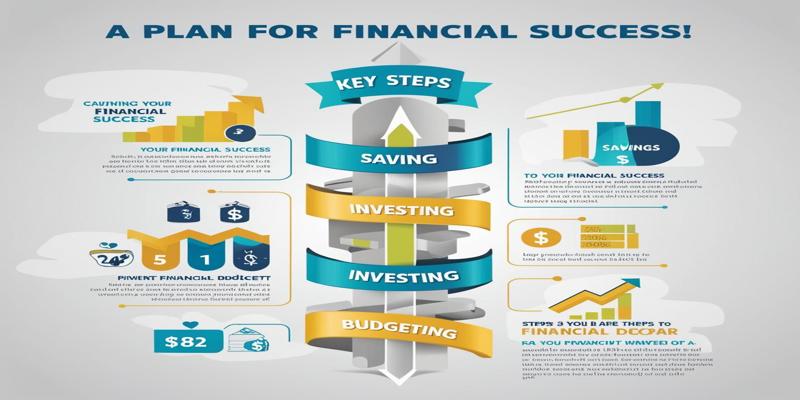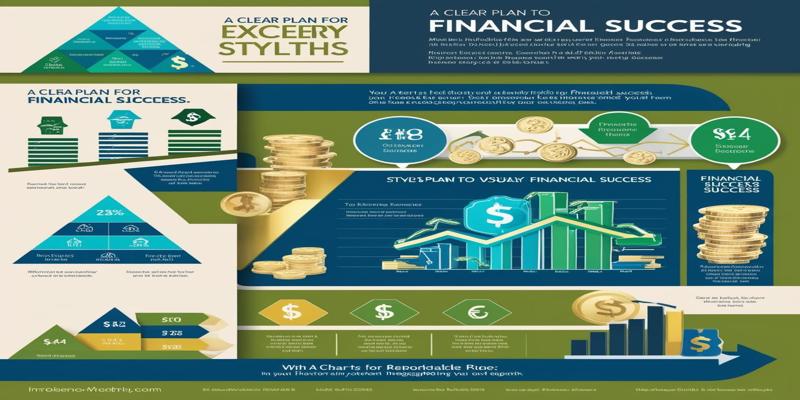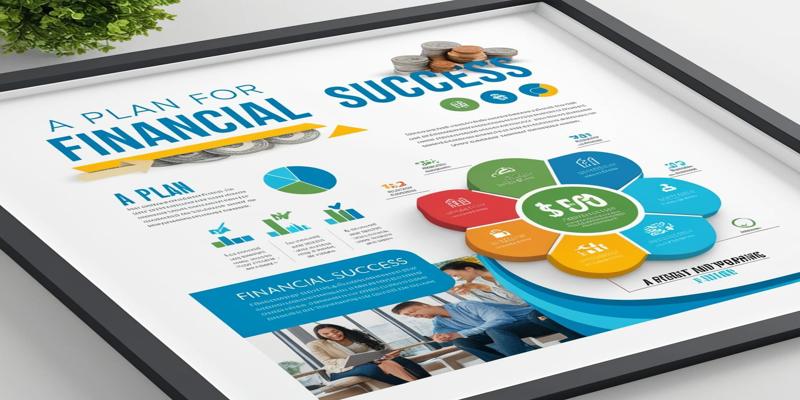5 Ways to Improve Your Finance Health
Dec 06, 2024 By Pamela Andrew
Are you ready to take control of your financial future? Getting truly healthy financially involves much more than balancing your checkbook or saving a few dollars here and there. It requires comprehensive attention that addresses all areas of your financial life. Here, you'll discover a robust 5-point plan that will get you moving in the right direction toward long-term economic success.
Know Where You Stand: Review Your Finances

Assess Your Current Financial Situation
The first step to financial success is knowing where you are. It's essential to sit down once a month or even once a quarter to assess and take ownership of your financial situation and track the progress of your goals. To begin, gather your financial statements for the last three months, including all checking, savings, retirement, and investment accounts and any loan or credit card statement.
Evaluate Your Income and Expenses
It will be time to delve into the details when the documents are in order. Take a look at your monthly spending and compare that against income. Are you living within your means, or are you consistently overspending? Find areas to cut back on and make the necessary adjustments to the budget. This way, you can ensure your income covers your expenses and have something over financial goals.
Track Your Progress and Set New Goals
A quarterly financial review lets you catch debt spirals or expensive spending habits before they spiral out of control. Take the time to review your progress toward your financial goals, from building up your emergency fund to saving for a house down payment or retirement. Update your goals, changing them when necessary, while considering others that better fit where you are now and your aspirations for the future.
Make a Budget and Stick To It
Creating and sticking to a budget is the key to financial health. According to Ache Consumer Financial Protection Bureau, the hallmarks of a well-crafted budget include making debt overwhelming, saving for emergencies, and generally having one's finances in better shape.
Crafting Your Budget
To make a budget that works, do the following:
- Identify all income sources
- Track and categorize your spending
- List all bills and their due dates
- Use a budget worksheet to consolidate information
Sticking to Your Plan
Maintaining your budget requires discipline and strategy. Try these effective techniques:
- Find a budgeting method that works for you, whether it's a daily journal or weekly review
- Set specific financial goals and reward progress
- Use the "budget to zero" method, allocating every dollar purposefully
- Implement a "no-spend challenge" periodically to curb unnecessary expenses
- Automate savings transfers to prioritize financial goals
Build an Emergency Fund
Start Small, Grow Steadily
Building an emergency fund is one step towards financial stability. Try to set aside an amount each month, no matter how small, even if it is $100. Consistency is the golden rule. Have money transferred automatically and easily via your checking account into a separate savings account?
Aim for 3-6 Months of Expenses
Eventually, it would help if you tried to save enough to cover 3-6 months of living expenses. This cushion can be comforting and entirely secure in case of job loss, medical emergencies, or major car repairs. If you're self-employed or have a single-income household, consider aiming for as many as 8 months of expenses.
Choose the Right Account
Consider keeping the emergency fund liquid in an account different from the money you use for everyday transactions. A high-yielding savings or money market account will be suitable. Find an account that offers a competitive interest rate but does not charge an annual fee. Separation eliminates the temptation to tap into your emergency savings when making frivolous purchases.
Use Windfalls Wisely
If you don't already have one, build up an emergency fund of three to six months' expenses in a short-term savings account and give your account a fast boost by setting aside any extra money that comes your way, such as a tax refund, a bonus at work, or cash gifts. This will allow you to reach your goal of saving more quickly without affecting your regular budget.
Pay Down Debt

Paying off debt is an essential aspect of achieving financial health. The first thing you should do to start working on paying off your debt is to have a complete plan prepared. List all the debts, including credit cards and loans, along with any other pending balances. Mention the interest rates and minimum payments for each of those.
Choose a Debt Repayment Strategy
Two popular methods for tackling debt are:
- Snowball: Pay the littlest debt first, then roll that payment into the next smallest.
- The debt avalanche method: Target the debt with the highest interest rate first, then move to the next highest.
Choose the plan that best fits your financial situation and motivational needs.
Accelerate Your Debt Payoff
To expedite your debt repayment:
- Pay more than the minimum monthly payment to the loans to save interest.
- Debt consolidation shall be considered for it to be easier for you to pay, probably at a lower interest rate.
- Increase your income through part-time jobs or selling things you don't need. Take advantage of online bill pay.
- Set reminders to make sure payments are made on time.
Invest for the Future
Investing in the future is crucial to financial health. Being strategic about your investments today can lead to long-term economic success.
Diversify Your Portfolio
One key strategy is diversification across asset classes, sectors, and markets. This helps spread risk to a wider range of potential sources of return. Think of a mix of stocks, bonds, and other assets appropriate for your risk tolerance and investment horizon.
Embrace Long-Term Thinking
It pays to take the long view when investing. Focus on your financial goals rather than getting caught up in short-term market fluctuations. After all, being in the market can be more important than trying to time the market.
Leverage Tax-Advantaged Accounts
Utilize tax-advantaged accounts, such as Roth IRAs. This will let this account grow tax-free and maximize long-term returns. Besides this, try to automate your investments as much as possible so that the money keeps building up through constant contribution.
Conclusion
With this five-point plan, you are in control of your financial future and can work toward permanent financial health and success. Building wealth and security does take time, discipline, and patience. Stay on course with your budget, keep learning more about finances, and stay focused on your long-term goals.








